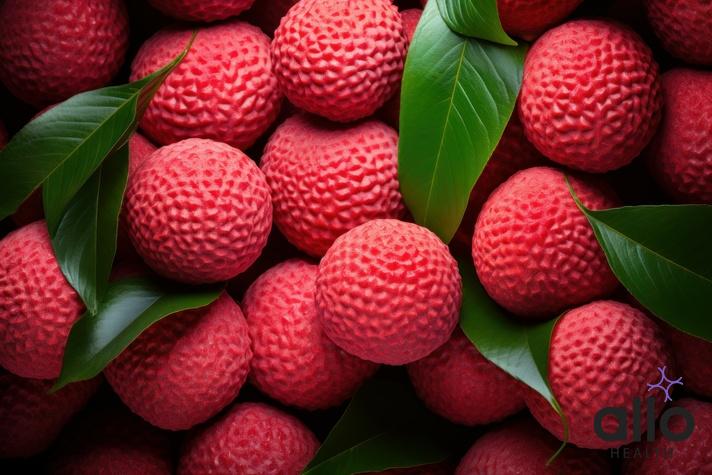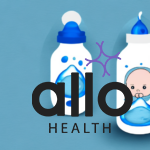Is Litchi During Pregnancy Safe?

"The following blog article discusses food and diet-related information for general educational purposes. However, it is important to note that the information provided is not intended as personalized dietary advice and should not be considered a substitute for professional guidance from a registered dietitian or qualified healthcare professional. Before making any significant changes to your diet or nutrition plan, it is recommended to consult with a registered dietitian or healthcare professional.
Book consultation
Dietary changes can have a significant impact on your overall health and well-being. It is important to approach any changes to your diet in a balanced and sustainable manner, ensuring that you meet your nutritional needs and avoid any potential nutrient deficiencies. Rapid or extreme changes in dietary patterns can be detrimental to your health and may require professional guidance.
It is crucial to note that any specific dietary recommendations or guidelines mentioned in this article may not be appropriate for individuals with specific medical conditions, allergies, or intolerances. A registered dietitian or healthcare professional can provide individualized advice, including modifications or alternative food choices to accommodate your unique circumstances.
The information provided in this article may not encompass all possible dietary considerations or account for the latest research and nutritional guidelines."
Pregnancy is a time when a woman’s nutritional requirements are at their highest. A balanced and varied diet is essential to ensure that the mother and the developing fetus receive all the necessary nutrients for healthy growth and development. While most foods are safe to eat during pregnancy, some need to be consumed in moderation or avoided altogether. One such food is litchi: the juicy, sweet fruit that is loved by many. In this article, we explore the benefits and risks of eating litchi during pregnancy.
What Is Litchi?
Litchi, scientifically known as Litchi chinensis, is a tropical fruit native to Southeast Asia and is highly regarded for its sweet and fragrant taste. It belongs to the Sapindaceae family, which includes other fruits like longan and rambutan. Litchi is commonly referred to as lychee or lichee, and it is a popular fruit worldwide, prized for its unique flavor and nutritional benefits.
Here’s a detailed overview of litchi:
- Appearance: Litchi fruits are small, roughly the size of a golf ball, and they have a bumpy, reddish-pink or orange-pink outer skin. The skin is thin but leathery and can be easily peeled away to reveal the translucent, juicy flesh inside. The flesh is white or pinkish-white and surrounds a single, large seed.
- Taste and Texture: Litchi is renowned for its sweet and aromatic flavor. The flesh is succulent and has a slightly floral and musky aroma. Its taste is often described as a combination of strawberries, watermelon, and grapes. The texture is firm and juicy, making it a delightful fruit to eat.
- Nutritional Value: Litchi is a healthy fruit with various nutritional benefits. It is a good source of vitamin C, providing over 100% of the recommended daily intake in a 100-gram serving. It also contains dietary fiber, antioxidants like flavonoids and polyphenols, and several essential minerals, including potassium and copper.
- Health Benefits:
- Rich in Antioxidants: Litchi contains antioxidants that help protect cells from oxidative damage and reduce the risk of chronic diseases.
- Vitamin C: This vitamin is essential for a healthy immune system, skin, and overall well-being.
- Dietary Fiber: Litchi’s fiber content aids in digestion and may help regulate blood sugar levels.
- Heart Health: Potassium in litchi may help lower blood pressure, reducing the risk of heart disease.
- Weight Management: The fruit is relatively low in calories, making it a good option for those watching their weight.
- Culinary Uses: Litchi is primarily eaten fresh, but it can also be used in various culinary applications:
- Added to fruit salads and desserts.
- Blended into smoothies and fruit juices.
- Used in cocktails and mocktails for its unique flavor.
- Preserved as litchi syrup, jam, or canned fruit.
- Harvesting and Season: Litchi fruits are typically harvested in late spring to early summer, depending on the region. The fruit’s season is relatively short, lasting only a few weeks, so it is often enjoyed fresh when in season.
- Cultivation: Litchi trees require a subtropical to tropical climate with well-drained soil. They are sensitive to cold temperatures and frost. China, India, and Thailand are some of the largest producers of litchi in the world.
Litchi Glycemic Index
The glycemic index (GI) is a numerical scale that ranks carbohydrate-containing foods based on how quickly they raise blood sugar levels when consumed. Foods with a high GI value (70 or above) are rapidly digested and cause a rapid spike in blood sugar, while foods with a low GI value (55 or below) are digested more slowly, leading to a slower and steadier increase in blood sugar. The GI can be useful for individuals with diabetes or those looking to manage their blood sugar levels.
Now, let’s discuss the glycemic index of litchi in detail:
- Litchi’s GI Value: Litchi has a moderate to high glycemic index value, typically ranging from 50 to 57. This places it in the category of foods with a moderate GI value. Keep in mind that the exact GI value can vary depending on factors such as ripeness and variety.
- Factors Affecting Litchi’s GI:
- Ripeness: The ripeness of the litchi fruit can affect its glycemic index. Riper litchis tend to have a higher GI because the natural sugars in the fruit become more easily accessible for digestion as the fruit ripens.
- Processing: The form in which litchi is consumed can also impact its GI. Fresh, whole litchis are likely to have a lower GI compared to litchi juice or canned litchi, which may have added sugars and a higher GI.
- Fiber Content: Litchis contain some dietary fiber, which can slow down the digestion and absorption of carbohydrates, potentially lowering the overall glycemic response. The fiber content in litchi is relatively low compared to some other fruits.
- Implications for Blood Sugar Control:
- If you have diabetes or are concerned about blood sugar control, it’s essential to consume litchis in moderation and be mindful of portion sizes.
- Pairing litchi with foods that have a lower GI (e.g., nuts, yogurt, or whole grains) can help mitigate its impact on blood sugar levels.
- The glycemic response to litchi may also vary among individuals, so it’s a good idea to monitor your blood sugar after consuming litchi to understand how it affects you personally.
- Nutritional Considerations:
- While litchi has a moderate GI, it provides various nutritional benefits, including vitamin C, dietary fiber, and antioxidants. These nutrients can be part of a healthy diet when consumed in moderation.
- If you have concerns about the glycemic impact of litchi, it’s advisable to consult with a healthcare provider or a registered dietitian who can provide personalized guidance on managing your diet and blood sugar levels.
Can Pregnant Ladies Eat Litchi?
Litchi, like many fruits, can be a healthy and nutritious addition to a pregnant woman’s diet when consumed in moderation and with proper hygiene considerations. Here’s a detailed look at whether pregnant women can eat litchi and some important considerations:
- Nutritional Benefits:
- Litchi is a good source of vitamin C, which is important for the development of the baby’s bones and teeth and for the mother’s immune system.
- It also contains various antioxidants and essential minerals like potassium, which can benefit both the mother and the developing fetus.
- The dietary fiber in litchi can help alleviate constipation, a common concern during pregnancy.
- Potential Benefits During Pregnancy:
- Litchi can provide a refreshing and hydrating snack, which can be especially helpful if a pregnant woman is experiencing morning sickness or nausea.
- The natural sugars in litchi can help satisfy sweet cravings without resorting to processed or unhealthy sugary snacks.
- Considerations and Precautions:
- Moderation: Pregnant women can enjoy litchi, but like any other fruit, it should be consumed in moderation as part of a balanced diet. Overconsumption of any fruit can lead to excessive calorie intake and potential concerns related to blood sugar control.
- Hygiene: Properly wash and peel litchis before consumption to reduce the risk of contamination from pesticides or bacteria. Ensure that the fruit is ripe, as unripe litchis can be acidic and may cause digestive discomfort.
- Allergies: Some individuals may have allergies to litchi or similar fruits in the same family, such as longan and rambutan. If there is a known allergy, it’s best to avoid litchi during pregnancy.
- Glycemic Index: As discussed in a previous response, litchi has a moderate glycemic index. Pregnant women with gestational diabetes or those at risk of high blood sugar levels should be mindful of their portion sizes and monitor their blood sugar levels after consuming litchi.
- Consultation with a Healthcare Provider: Every pregnancy is unique, and dietary recommendations can vary based on individual circumstances and any underlying health conditions. It’s advisable for pregnant women to consult with their healthcare provider or a registered dietitian to create a personalized nutrition plan that meets their specific needs and ensures a healthy pregnancy.
- Litchi-Related Concerns (Hypoglycin A):
- In some regions, there have been concerns about litchi consumption during pregnancy due to the presence of hypoglycin A in unripe or under-ripe litchis. Hypoglycin A can cause a condition known as “litchi toxicity,” which may lead to symptoms like vomiting, low blood sugar (hypoglycemia), and in severe cases, even encephalopathy. This condition has been reported primarily in young children and is associated with the consumption of unripe litchis on an empty stomach.
To reiterate, ripe litchis can be a safe and nutritious addition to a pregnant woman’s diet when consumed in moderation and with proper precautions. It’s essential to consult with a healthcare provider or a registered dietitian for personalized dietary guidance during pregnancy, taking into account individual health factors and dietary preferences.
Frequently Asked Questions
(1) Is it safe to eat litchi during pregnancy?
Yes, it is generally safe to eat litchi during pregnancy when consumed in moderation. Litchi provides essential nutrients and can be a healthy addition to your diet.
(2) Are there any benefits of eating litchi while pregnant?
Litchi is a good source of vitamin C and antioxidants, which can support your immune system and overall health during pregnancy. It can also help with hydration and constipation.
(3) Can litchi cause allergies during pregnancy?
Some individuals may have allergies to litchi or related fruits. If you have known allergies, it’s best to avoid litchi during pregnancy.
(4) Is there a risk of gestational diabetes from eating litchi?
Litchi has a moderate glycemic index. Pregnant women with gestational diabetes should consume it in moderation and monitor blood sugar levels after consumption.
(5) Should I peel litchis before eating them during pregnancy?
Yes, it’s advisable to wash and peel litchis before eating to reduce the risk of contamination from pesticides or bacteria.
(6) Can unripe litchis be harmful during pregnancy?
Unripe litchis can contain hypoglycin A, which may lead to litchi toxicity. It’s best to consume ripe litchis and avoid unripe ones during pregnancy.
(7) How can I incorporate litchi into my pregnancy diet?
You can enjoy litchi fresh, in fruit salads, smoothies, or as a healthy snack. Just remember to consume it in moderation.
(8) Can litchi help with morning sickness during pregnancy?
Litchi’s natural sugars and hydration can provide relief from morning sickness for some pregnant women.
(9) Are there any risks associated with litchi in pregnancy?
Generally, there are no significant risks associated with litchi consumption during pregnancy when eaten in reasonable quantities and with proper hygiene.
(10) Should I consult my healthcare provider before including litchi in my diet during pregnancy?
Yes, it’s a good idea to consult with your healthcare provider or a registered dietitian to ensure that litchi fits well into your individualized pregnancy nutrition plan and doesn’t pose any specific concerns for your health.






































